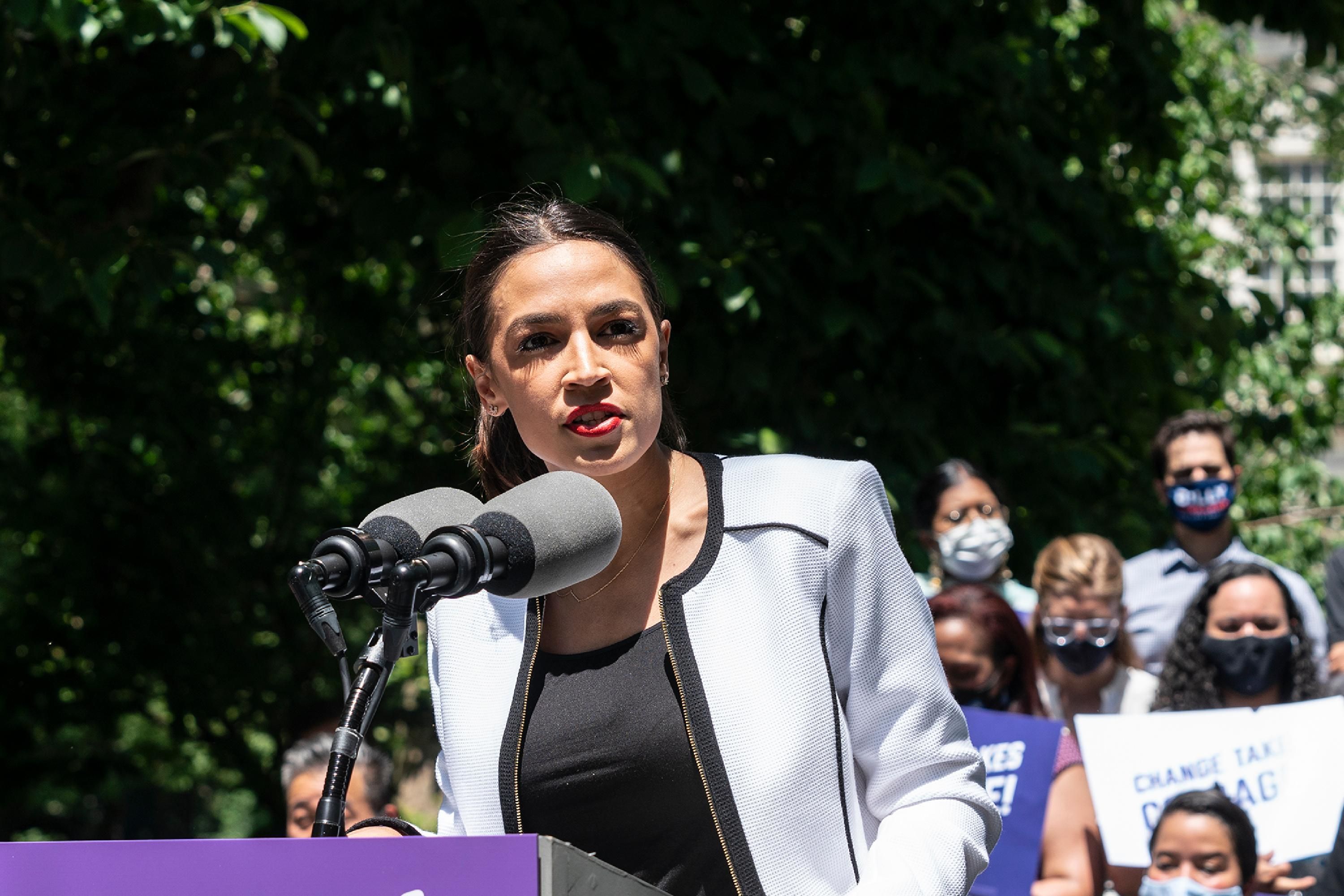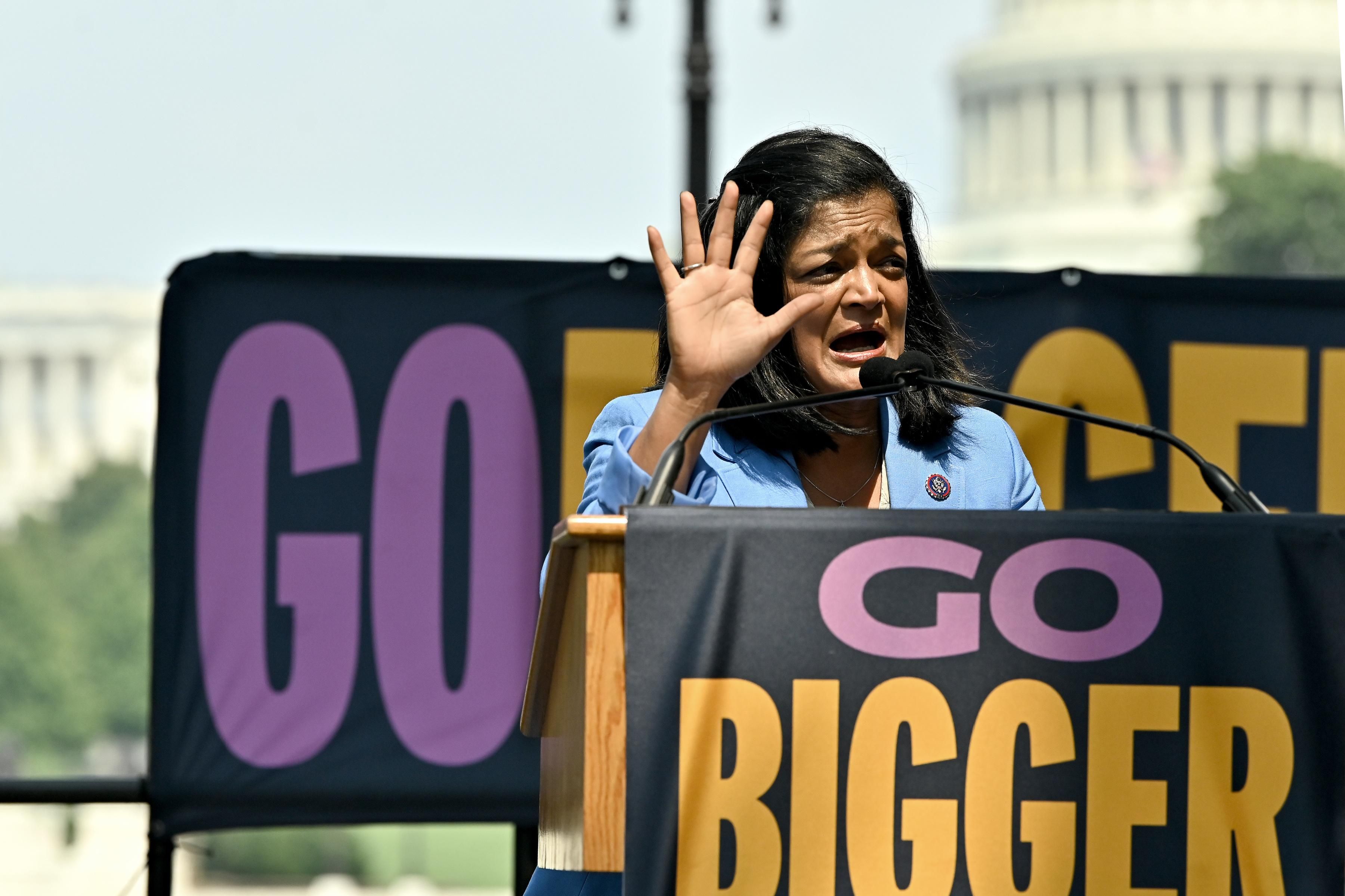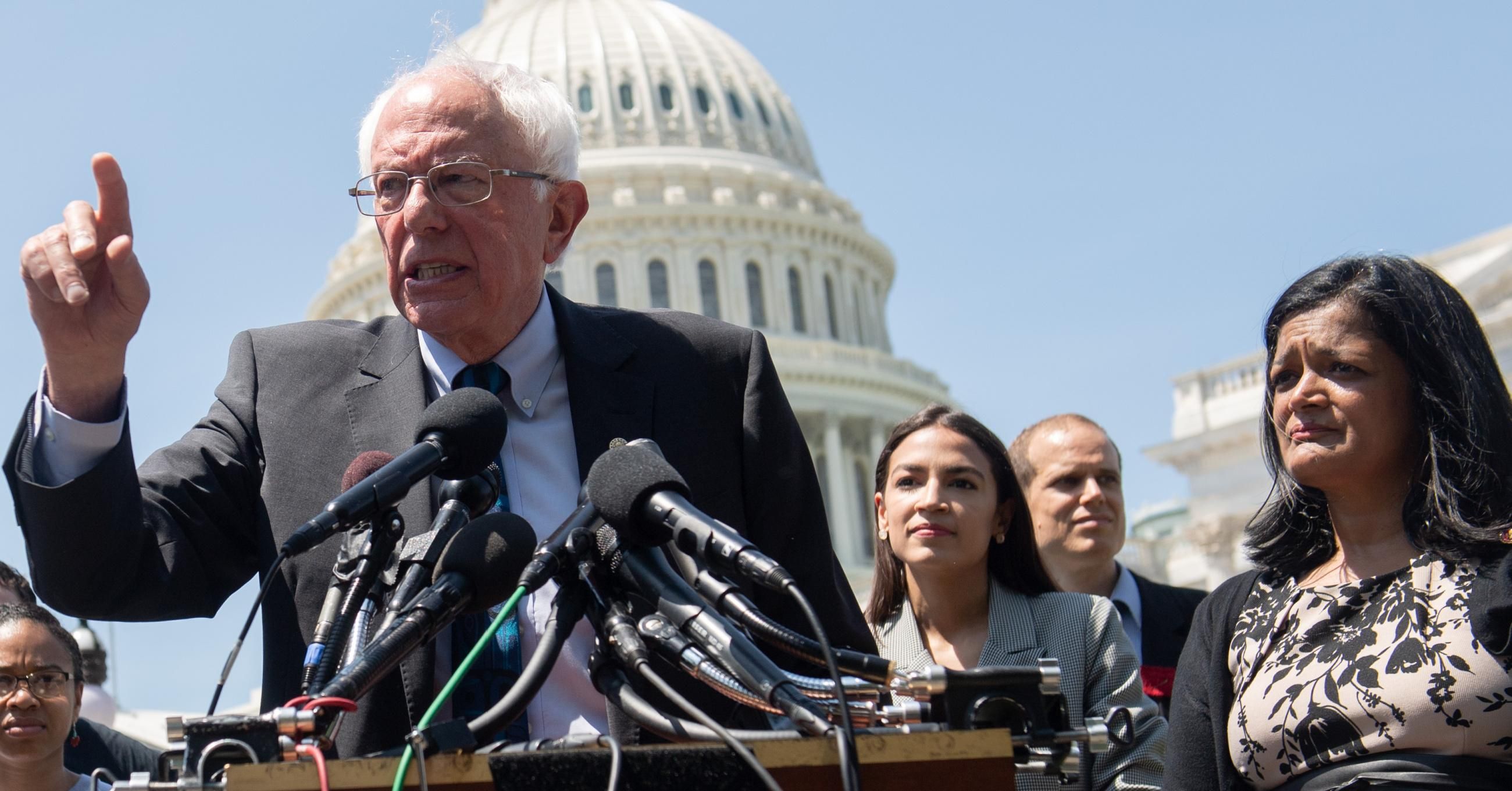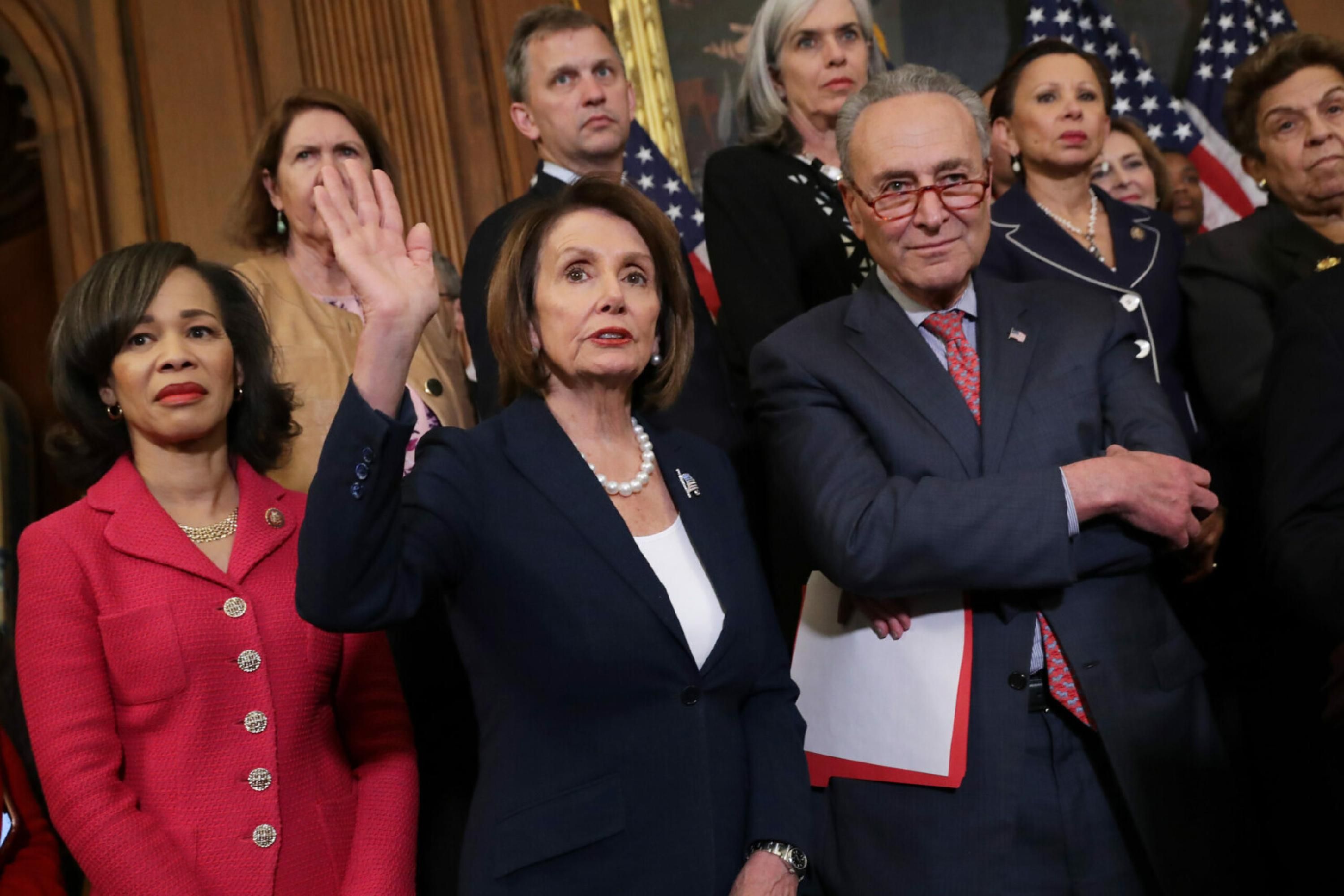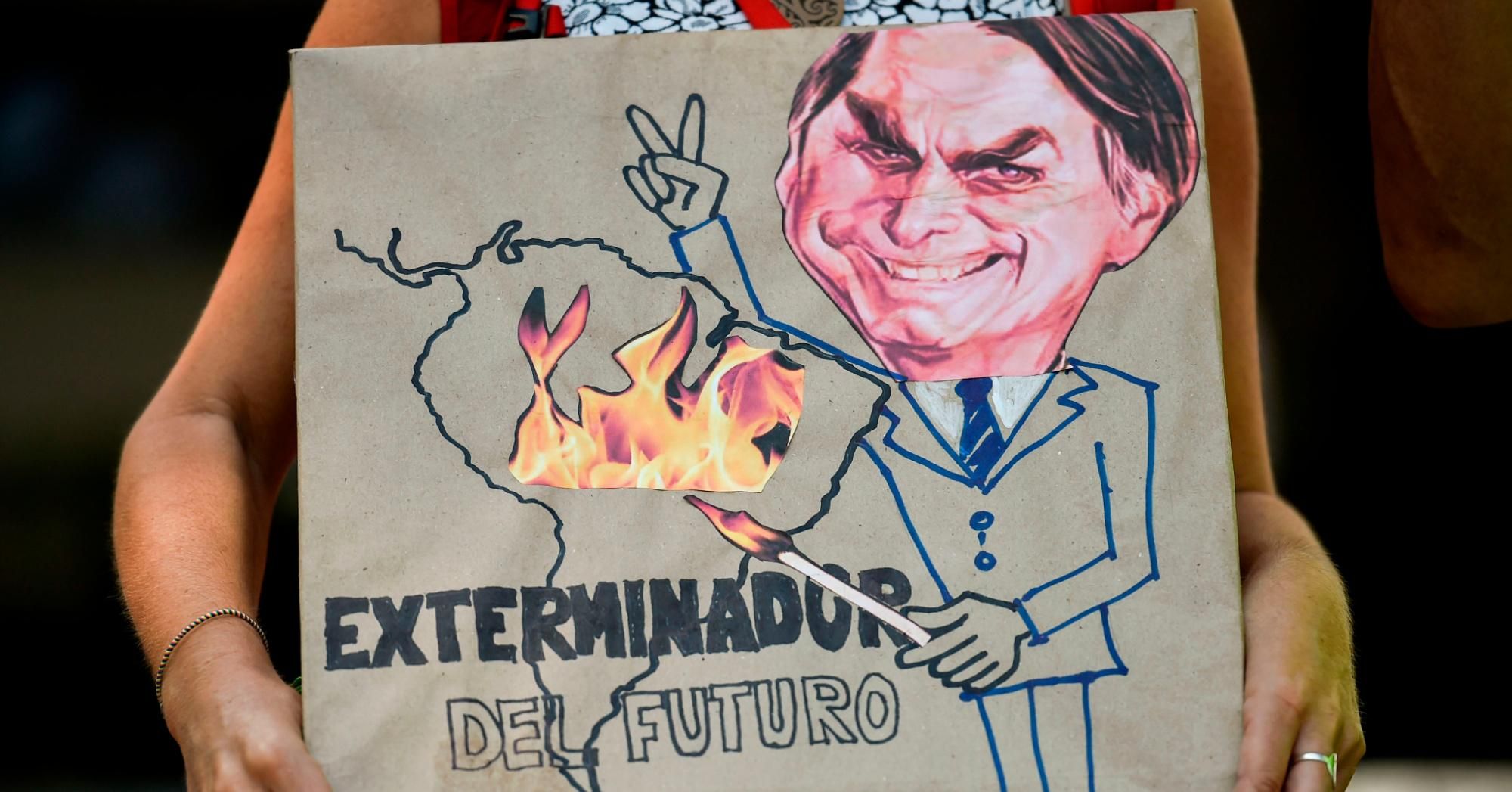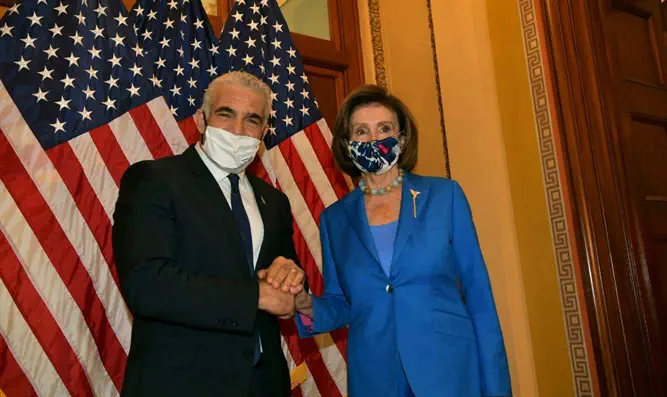In 2021, US on Pace for Most Billion-Dollar Weather Disasters Since Records Began
"What we are seeing now with these increasing disasters is with just one degree of warming on our planet," said one scientist. "We have to choose now between bad or terrible outcomes."
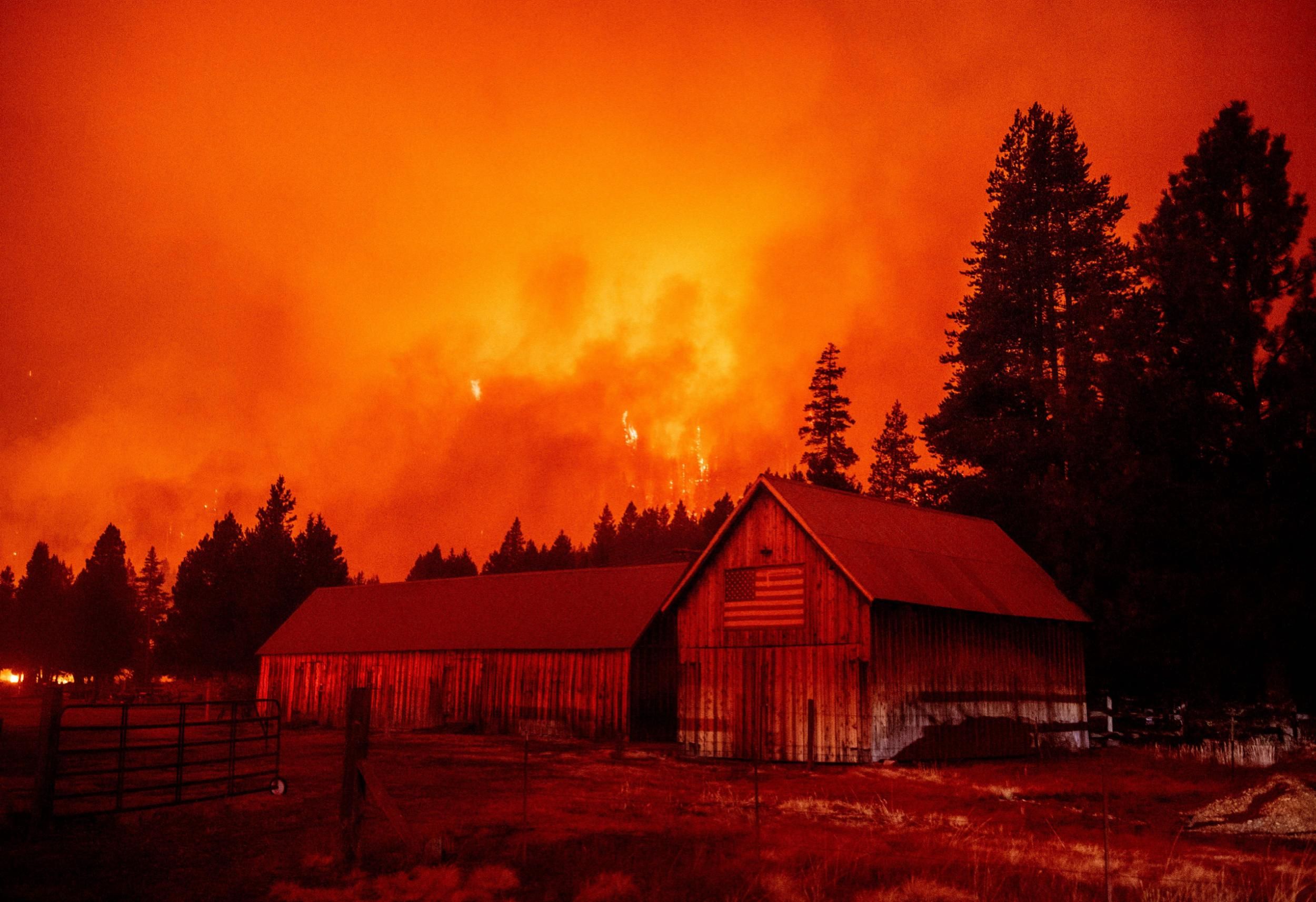
Flames rip across a hillside behind a building donning a U.S. flag as the Caldor Fire pushes into South Lake Tahoe, California on August 30, 2021.
(Photo: Josh Edelson/AFP via Getty Images)
KENNY STANCIL
KENNY STANCIL
COMMON DREAMS
October 12, 2021
The National Oceanic and Atmospheric Administration announced Tuesday in its latest monthly report that the United States endured 18 "billion-dollar weather and climate disasters" through the first nine months of 2021, putting this year on pace to be among the worst for such catastrophes.
For decades, scientists have sounded the alarm that extreme weather would become more frequent and intense amid the fossil fuel-driven climate emergency. With 18 calamities costing at least $1 billion already on the books and three months to go, 2021 is second only to 2020, when there were 22 such events.
Before it was surpassed last year, the previous annual record for billion-dollar disasters was 16—reached in 2011 and matched in 2017. While last year saw a greater number of billion-dollar disasters, 2021 is outpacing 2020 through September
The National Oceanic and Atmospheric Administration announced Tuesday in its latest monthly report that the United States endured 18 "billion-dollar weather and climate disasters" through the first nine months of 2021, putting this year on pace to be among the worst for such catastrophes.
For decades, scientists have sounded the alarm that extreme weather would become more frequent and intense amid the fossil fuel-driven climate emergency. With 18 calamities costing at least $1 billion already on the books and three months to go, 2021 is second only to 2020, when there were 22 such events.
Before it was surpassed last year, the previous annual record for billion-dollar disasters was 16—reached in 2011 and matched in 2017. While last year saw a greater number of billion-dollar disasters, 2021 is outpacing 2020 through September
.

Furthermore, although not all of the destruction has been calculated, this year's events have already proven more expensive, causing $104.8 billion in damages compared with $100.4 billion in 2020. The costliest years to date are 2017 and 2005, when Hurricanes Harvey and Katrina devastated Houston and New Orleans, respectively.

Communities across the nation have been ravaged by a variety of extreme weather events in 2021, which have resulted in the deaths of 538 people.
Some of the most notable billion-dollar disasters that occurred between January and September include the winter storm that wrecked Texas' isolated, deregulated, and fossil fuel-dependent power grid, causing dozens to freeze to death; relentless Western drought, heatwaves, and wildfires that have burned nearly 6.5 million acres to date and killed over two hundred people; and the highly destructive Hurricane Ida, which barreled into the Gulf Coast's extensive petrochemical infrastructure, leaving dozens of oil spills in its wake, and also pummeled the Northeast, adding more casualties.

Just as climate scientists have warned it would, unmitigated greenhouse gas pollution is producing higher temperatures and more extreme weather—leading to more and more catastrophic events.
Since NOAA started keeping such records in 1980, the U.S. has been hammered by 308 billion-dollar disasters, claiming 15,030 lives and costing roughly $2.1 trillion—with annual averages of just over seven events, 358 deaths, and approximately $50 billion in damages.
The average number of annual billion-dollar disasters has skyrocketed from about three events nationwide per year in the 1980s to more than 12 events per year in the 2010s. The average number of annual deaths has also increased over the decades, from 287 per year in the 1980s to 522 per year in the 2010s.
From 2016 to 2020—the five hottest years on record—there were more than 16 separate billion-dollar disasters per year, on average. Combined, the 81 events killed nearly 4,000 people, or more than a quarter of the death toll since 1980, and cost $640.3 billion, accounting for over 30% of the 40-year financial toll.
Researchers at Climate Central recently pointed out that the growing frequency of calamitous events "can strain the resources available for communities to recover quickly and manage future risks."
According to their new analysis, the average time between billion-dollar disasters has declined from 82 days in the 1980s to just 18 days on average in the past five years (2016-2020).

Climate Central argued that NOAA's "staggering figures primarily reflect direct impacts on assets (including damage to homes, crops, and critical infrastructure) and therefore don't reflect the full toll of disasters—including on human health and well-being, displacement, food and water supplies, as well as loss of cultural heritage, biodiversity, and habitats."
"Nor do these figures convey the disproportionate impacts of disasters on people in poverty or the need for equitable allocation of federal disaster assistance in accordance with social vulnerability," the group added.
And the U.S. is far from alone in experiencing an uptick in extreme weather events, which are also decimating impoverished nations around the globe.
Related Content

'Uninhabitable Hell' for Millions: UN Report Sounds Alarm on Humanity's Continued Destruction of Planet Earth
Brett Wilkins
Last year, the United Nations Office for Disaster Risk Reduction reported a "staggering" increase in climate-related disasters worldwide, which nearly doubled from 3,656 between 1980 and 1999 to 6,681 between 2000 and 2019.
Camilo Mora, a professor of geography at the University of Hawai'i at Mānoa, told the Washington Post on Tuesday that "the poorest countries in the world are the ones that we know the least about."
"If it is already bad in the countries that have the money to study," he continued, "you can just imagine what is happening in the developing countries."
"What we are seeing now with these increasing disasters is with just one degree of warming on our planet," Mora added. "Looking into the future, our best-case scenario is 1.5 degrees [Celsius] of warming, and the worst case is 5 degrees. We have to choose now between bad or terrible outcomes."
Our work is licensed under Creative Commons (CC BY-NC-ND 3.0). Feel free to republish and share widely.
Furthermore, although not all of the destruction has been calculated, this year's events have already proven more expensive, causing $104.8 billion in damages compared with $100.4 billion in 2020. The costliest years to date are 2017 and 2005, when Hurricanes Harvey and Katrina devastated Houston and New Orleans, respectively.
Communities across the nation have been ravaged by a variety of extreme weather events in 2021, which have resulted in the deaths of 538 people.
Some of the most notable billion-dollar disasters that occurred between January and September include the winter storm that wrecked Texas' isolated, deregulated, and fossil fuel-dependent power grid, causing dozens to freeze to death; relentless Western drought, heatwaves, and wildfires that have burned nearly 6.5 million acres to date and killed over two hundred people; and the highly destructive Hurricane Ida, which barreled into the Gulf Coast's extensive petrochemical infrastructure, leaving dozens of oil spills in its wake, and also pummeled the Northeast, adding more casualties.

Just as climate scientists have warned it would, unmitigated greenhouse gas pollution is producing higher temperatures and more extreme weather—leading to more and more catastrophic events.
Since NOAA started keeping such records in 1980, the U.S. has been hammered by 308 billion-dollar disasters, claiming 15,030 lives and costing roughly $2.1 trillion—with annual averages of just over seven events, 358 deaths, and approximately $50 billion in damages.
The average number of annual billion-dollar disasters has skyrocketed from about three events nationwide per year in the 1980s to more than 12 events per year in the 2010s. The average number of annual deaths has also increased over the decades, from 287 per year in the 1980s to 522 per year in the 2010s.
From 2016 to 2020—the five hottest years on record—there were more than 16 separate billion-dollar disasters per year, on average. Combined, the 81 events killed nearly 4,000 people, or more than a quarter of the death toll since 1980, and cost $640.3 billion, accounting for over 30% of the 40-year financial toll.
Researchers at Climate Central recently pointed out that the growing frequency of calamitous events "can strain the resources available for communities to recover quickly and manage future risks."
According to their new analysis, the average time between billion-dollar disasters has declined from 82 days in the 1980s to just 18 days on average in the past five years (2016-2020).

Climate Central argued that NOAA's "staggering figures primarily reflect direct impacts on assets (including damage to homes, crops, and critical infrastructure) and therefore don't reflect the full toll of disasters—including on human health and well-being, displacement, food and water supplies, as well as loss of cultural heritage, biodiversity, and habitats."
"Nor do these figures convey the disproportionate impacts of disasters on people in poverty or the need for equitable allocation of federal disaster assistance in accordance with social vulnerability," the group added.
And the U.S. is far from alone in experiencing an uptick in extreme weather events, which are also decimating impoverished nations around the globe.
Related Content

'Uninhabitable Hell' for Millions: UN Report Sounds Alarm on Humanity's Continued Destruction of Planet Earth
Brett Wilkins
Last year, the United Nations Office for Disaster Risk Reduction reported a "staggering" increase in climate-related disasters worldwide, which nearly doubled from 3,656 between 1980 and 1999 to 6,681 between 2000 and 2019.
Camilo Mora, a professor of geography at the University of Hawai'i at Mānoa, told the Washington Post on Tuesday that "the poorest countries in the world are the ones that we know the least about."
"If it is already bad in the countries that have the money to study," he continued, "you can just imagine what is happening in the developing countries."
"What we are seeing now with these increasing disasters is with just one degree of warming on our planet," Mora added. "Looking into the future, our best-case scenario is 1.5 degrees [Celsius] of warming, and the worst case is 5 degrees. We have to choose now between bad or terrible outcomes."
Our work is licensed under Creative Commons (CC BY-NC-ND 3.0). Feel free to republish and share widely.


